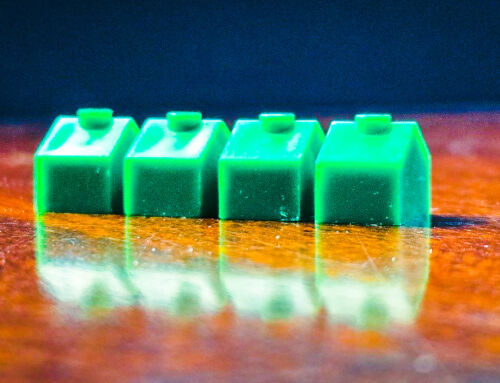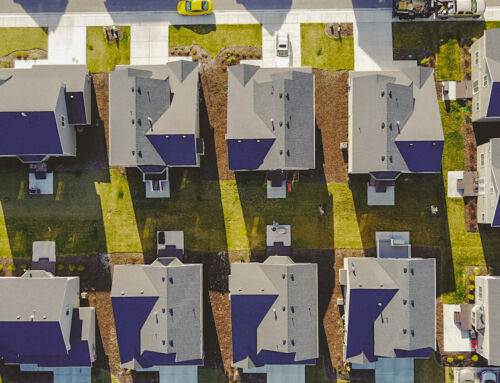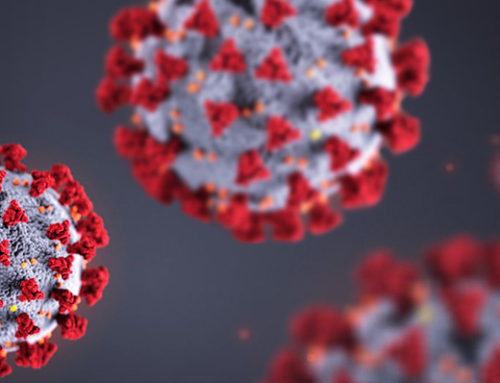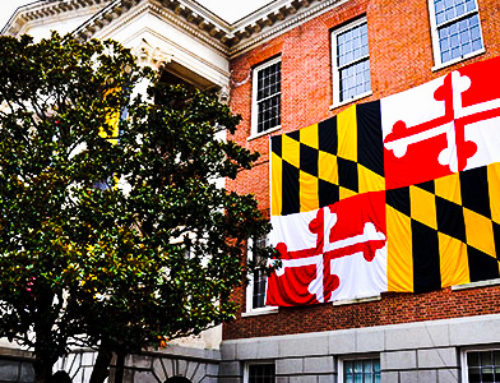View by Topic
Recent Articles
-
EPA Will Keep Current Limits for “Forever Chemicals” in Drinking WaterSaturday, May 24th, 2025
-
Court Indefinitely Pauses SEC Climate Rule LitigationSaturday, May 17th, 2025
-
Maryland is About to Regulate Mold But is the Cart Before the HorseSaturday, May 10th, 2025
-
New Environmental Laws from the 2025 Maryland Legislative SessionSaturday, April 26th, 2025
View by Month/Year
“Green Building Law Update” Headlines
Recent Articles & News from
Stuart Kaplow’s blog
at GreenBuildingLawUpdate.com
- EPA Will Keep Current Limits for “Forever Chemicals” in Drinking Water May 25, 2025
- Court Indefinitely Pauses SEC Climate Rule Litigation May 18, 2025
- Maryland is About to Regulate Mold: But is the Cart Before the Horse? May 11, 2025
- BEPS Redux: The Most Far Reaching Environmental Legislation of the 2025 Maryland General Assembly May 4, 2025
Subscribe to the Green Building Law Update!
Stuart Kaplow brings his expertise and extensive experience to the table with his unique digital publication, "Green Building Law Update". Subscribers receive regular updates to keep them informed about important issues surrounding Environmental Law, Green Building & Real Estate Law, as well as the emerging demand for Environmental Social Governance (ESG).
Get fresh content through the lense of Stuart Kaplow's cutting-edge expertise, innovative commentary and insider perspective. Don't miss another issue! Subscribe below.
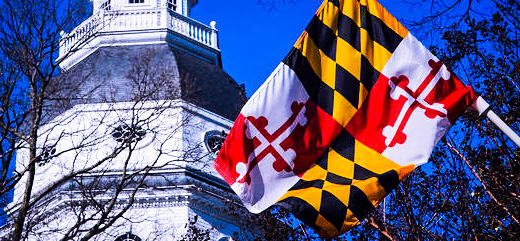
New Alcoholic Beverage Laws from the 2017 Session of the Maryland Legislature
Nancy Hudes and I are collaborating through Regulatory Solutions Consultancy, LLC, a new consultancy positively leveraging constraints and finding advantages in the licensed beverage industry. If we can assist you in matters of alcoholic beverage law, do not hesitate to give us a call.
It is difficult to comprehend what new liquor licensing laws could possibly be required in Maryland in 2017 after the legislature passed the largest bill in Maryland history last year, some 3,180 pages long, codifying alcoholic beverage laws.
But as the just concluded 437th session of the Maryland General Assembly, began in the City of Annapolis on the eleventh day of January 2017, and ending on the tenth day of April 2017, more than 2,881 bills were introduced of which more than 361 bills were enacted, including more than a few that will provide business opportunities for those engaging in the sale of alcoholic beverages.
For the past several years, craft brewers in the State have backed legislation to increase the amount of beer they may sell for on-premises consumption in their taprooms. They have been opposed by beer wholesalers and retailers, who have feared that their businesses would suffer as a result. Of the several bills on these issues, the sides reached agreement on House Bill 1283 (passed) that applies to all Class 5 breweries, which include both small craft breweries and a large Guinness brewery scheduled to open in Baltimore County. Note, the bill does not apply to pub-breweries, micro-breweries, or farm breweries.
The bill increases, from 500 barrels to 2,000 barrels, the amount of beer a Class 5 brewery may sell for on-premises consumption each year. The brewer may apply for permission to sell an additional 1,000 barrels per year, provided any beer sold in excess of the 2,000 barrels is first purchased by the brewer from a licensed wholesaler. The bill also authorizes a Class 5 brewery to contract to brew and bottle beer with and on behalf of another Class 5 brewery or holder of a Class 2 rectifying license, Class 7 micro-brewery license, Class 8 farm brewery license, or nonresident dealer’s permit. Contract beer that is sold for on-premises consumption at a Class 5 brewery may not exceed the greater of 25% of the total number of barrels of beer sold annually for on-premises consumption or 1.2% of total finished production under the Class 5 brewery license. Also, the bill alters the hours during which the sales and serving privileges of an on-site consumption permit may be exercised for specified Class 5 breweries. For license holders who obtain an on-site consumption permit after April 1, 2017, the hours of sale for on-site consumption extend from 10 a.m. until 10 p.m., Monday through Sunday. Class 5 breweries, who obtained licenses before April 1, 2017, are exempt from the bill’s stated hours of sale and will continue to operate under the longer hours established in each local jurisdiction.
In an effort to address recent ethical situations involving public officials and members of local boards of license commissioners, the General Assembly considered multiple statewide and local bills to establish liquor board reform and improved accountability. House Bill 1386 (passed) applies the requirements of the Maryland Public Ethics Law to members and employees of local boards of license commissioners and local liquor control boards by designating that these individuals are “public officials” subject to the Maryland Public Ethics Law. The bill does not apply in counties in which the county councils or board of county commissioners sit as a board of license commissioners or liquor control board. Accordingly, the bill does not apply in Dorchester, Howard, and Kent counties, where the legislative body sits as a board of license commissioners.
House Bill 792 (passed) requires the Office of Legislative Audits, at any time on request of both Presiding Officers, to conduct a performance audit of a local alcoholic beverages licensing board to evaluate the effectiveness and efficiency of the management practices of the board and the economy with which the board uses resources.
In recent years, legislation passed by the General Assembly has enabled local licensing boards in multiple jurisdictions to issue refillable container permits to liquor stores, restaurants, and bars to sell draft beer for off-premises consumption in refillable containers commonly called “growlers.” Senate Bill 491/House Bill 292 (both passed) establish a nonrefillable container permit in the State. The permit authorizes the sale of draft beer for off-premises consumption by packaging the beer in a disposable, nonrefillable container that meets specified standards. The permit may be issued by a local board of license commissioners in the same jurisdictions that authorize the sale of draft beer in refillable containers.
Senate Bill 210 (passed) authorizes the holder of a Class 8 farm brewery license to sell or serve any type of food if the license holder is also licensed to operate a food establishment in the State. The license holder must meet the same ratio of gross receipts between food and alcoholic beverages sales as a holder of a Class D beer and wine license or an equivalent license in the jurisdiction, as determined by the local licensing board.
Hard cider is a beverage derived primarily from apples, apple concentrate and water, pears, or pear concentrate and water. Senate Bill 281 (passed) increases, from 7.0% to 8.5%, the maximum alcohol by volume that hard cider may have to be defined as “beer” under the Alcoholic Beverages Article.
House Bill 464 (passed), an emergency bill, alters an existing national family beer and wine exhibition permit to be a national beer, wine, and liquor exhibition permit that may be issued to a bona fide alcohol trade association. This altered permit authorizes an exhibition and competition in the same manner as the family beer and wine exhibition permit.
A family beer and wine facility permit authorizes the holder to (1) establish a facility to produce family beer or wine by a consumer who is of legal drinking age but does not have a license and (2) provide equipment, raw materials, and instructions to a consumer. Senate Bill 1138 (passed) repeals a provision that prohibited the holder of a family beer and wine facility permit from simultaneously holding another alcoholic beverages license.
A person must be issued a direct wine shipper’s permit by the Comptroller’s Office before the person may engage in shipping wine directly to a consumer in the State. House Bill 987 (passed) requires a person that applies to obtain or renew a direct wine shipper’s permit to identify the wines manufactured by the applicant that the applicant intends to ship into the State.
In the 2016 recodified alcoholic beverages laws, references to “wine” were in some cases substituted for “light wine” if a county allowed license holders to sell wine with a maximum alcohol content of up to 22% or 23%. Various provisions that redefined light wine to contain no more than 22% or 23% alcohol by volume were then deleted as surplusage. House Bill 252 (passed) restores the limits by clarifying that a beer and wine license holder in Baltimore, Caroline, Carroll, Cecil, Dorchester, Frederick, Garrett, Harford, Kent, Montgomery, Queen Anne’s, St. Mary’s, Somerset, Talbot, Wicomico, and Worcester counties may not sell wine that contains more than 22% alcohol by volume and that a license holder in Harford County may not sell wine that contains more than 23% by volume. The bill also defines “liquor” to have the same meaning as “distilled spirits,” as that term is used in the Tax-General Article.
A Class 1 distillery license authorizes the establishment and operation of a plant for distilling brandy, rum, whiskey, alcohol, and neutral spirits at the location described in the license.
It also authorizes the sale and delivery of those alcoholic beverages, with specified restrictions.
House Bill 42 (passed) authorizes a Class 1 distillery license holder to rectify, blend, and bottle specified alcoholic beverages at the location described in the license. A Class 1 distillery license holder may acquire alcoholic beverages from the holder of a manufacturer’s license, wholesaler’s license, or nonresident dealer’s permit for use in manufacturing. The bill alters the samples that a Class 1 distillery license holder may serve to specified individuals. A license holder may sell 2.25 liters, instead of three 750-milliliter bottles, of products manufactured on the licensed premises for off-premises consumption. Additionally, the bill expands the Class 1 distillery license holder’s hours for on-premises consumption.
Select Local Bills
Allegany County
House Bill 1096 (Ch. 145) authorizes the sale of alcoholic beverages for off-premises consumption on Sundays for certain Class B, Class C, and Class D licenses. The Act also extends the hours during which alcoholic beverages may be sold on a Sunday for certain Class A and Class C licenses. Finally, the Act repeals a requirement that an establishment with a Class D beer and wine (BW) or a Class D beer, wine, and liquor (BWL) license be a restaurant in order to sell alcoholic beverages on a Sunday.
Anne Arundel County
Senate Bill 897 (Ch. 92) allows the Board of License Commissioners for Anne Arundel County to issue up to five Class H beer and light wine licenses to a single license holder. The Act also clarifies that the board may issue any Class H license as a second license to the holder of any Class B license that has a restriction prohibiting sales for consumption off the premises or to the holder of any Class H license.
Senate Bill 1088 (Ch. 99) codifies current practices by altering the eligibility requirements to obtain a Class B BWL license. Specifically, the license may only be issued for use by a restaurant that has ample space and accommodations to regularly prepare, sell, and serve hot meals at least twice per day; is equipped with a public dining room with sufficient tables, chairs, cutlery, and glassware to serve the meals prepared by the restaurant; is equipped with a kitchen that has complete facilities and utensils for preparing and serving hot and cold meals; and employs a sufficient number of staff to accommodate customers.
Senate Bill 374/House Bill 554 (both passed) increase, from $20,000 to $60,000, the annual salary of the attorney for the Anne Arundel County Board of License Commissioners. The bills also authorize the board to hire a contractual attorney to perform work that the attorney employed by the board is unable to perform due to a conflict of interest; however, the board may not spend more than $30,000 a year to hire a contractual attorney.
Baltimore City
Senate Bill 479/House Bill 289 (both passed) establish a marketplace license in the 40th alcoholic beverages district (and there are two locations that meet this criteria). The Baltimore City Board of License Commissioners may issue the license only to a person, firm, or corporation that owns or leases the marketplace. The marketplace premises must accommodate the public and be equipped with five or more food service outlets that provide specified seating areas to patrons. The license authorizes a holder to sell BWL from one or more outlets within the marketplace by the drink or by the bottle, for on-premises consumption. The annual license fee is $6,000.
Senate Bill 384 (Ch. 81) authorizes the Baltimore City Board of License Commissioners to issue four Class B-D-7 licenses in the Old Goucher Revitalization District located within the 43rd alcoholic beverages district and one Class B-D-7 license in the 100 block of North Avenue in the 45th alcoholic beverages district. An application for the issuance, transfer, or renewal of a specified license is exempt from specified zoning and distance restrictions. A Class B-D-7 license that is issued for use in the Old Goucher Revitalization District may be transferred within the Old Goucher Revitalization District but may not be transferred outside of the district.
Senate Bill 998/House Bill 837 (both passed) authorize the Baltimore City Board of License Commissioners to issue a Class BWLT beer, wine, and liquor tasting (on-premises) tasting license to a holder of a Class A BWL license in ward 12, precinct 3 of the 43rd legislative district. The license authorizes a licensee to allow on-premises consumption of beer, light wine, and liquor for tasting.
House Bill 1348 (passed) establishes a public market license for use in an enclosed public market in ward 23, precinct 1 of the 46th alcoholic beverages district. The license holder may designate vendors in the public market to sell beer, wine, and liquor when served as an ingredient in mixed drinks that may be purchased for at least $5 each. The bill also authorizes the Baltimore City Board of License Commissioners to grant an off-sale privilege to the holder of an arena license for a premises located in the 3300 block of Annapolis Road. The bill authorizes the board to issue a Class B BWL license for a restaurant in the Port Covington Area and up to five Class B BWL licenses for use by establishments in the Locust Point area. Finally, the bill establishes an expiration date for a license in the 46th alcoholic beverages district and authorizes another license in the 46th alcoholic beverages district to be transferred to another owner and location.
Senate Bill 1122 (passed) authorizes the Baltimore City Board of License Commissioners to extend the 180-day period within which an approved alcoholic beverages license transfer must be completed if the board finds that an existing hardship has caused a delay. An extension may not prolong completion of the transfer beyond 270 days after the board approves the transfer.
House Bill 1136 (passed) sets the period between 9 a.m. and 9 p.m. as the hours of sale for Class B-D-7 beer, wine, and liquor stores in the area bounded by Liberty Heights Avenue, Northern Parkway, Druid Park Drive, and Wabash Avenue. The bill also states that the hours of sale for a Class B-D-7 store may not be extended if they begin later than 9 a.m. or end before 9 p.m.
Baltimore County
Senate Bill 559/House Bill 436 (both passed) add an additional exception to the prohibition against issuing an alcoholic beverages license to an establishment within 300 feet of a place of worship. The bills authorize the transfer of a Class B BWL license or a Class D BWL license that meet specified qualifications to an establishment that is: in a free-standing building with its own parking lot; zoned BL-CCC and in compliance with any applicable zoning ordinance; and, at least 100 feet from a place of worship. On the date of transfer, the license must be converted into a newly established Class B BWL (on-sale) service bar commercial revitalization district license (Class B-SB-CRD license). The authorization does not apply to a license that is otherwise prohibited from being transferred by statute or regulation.
Calvert County
House Bill 1423 (passed) requires the Calvert County Board of License Commissioners, at least
three months before submitting a legislative proposal to the Calvert County Delegation for introduction as a bill in a General Assembly session, to: post notice of the legislative proposal on the board’s website; send an email notice of the proposal to each license holder in the County; and, hold a public hearing on the proposal in the county. The bill’s requirements do not apply to a legislative proposal submitted to the county delegation for introduction as an emergency bill.
Cecil County
Senate Bill 816/House Bill 1201 (both passed) establish a beer, wine, and liquor tasting (BWLT) license and authorize the Board of License Commissioners for Cecil County to issue a BWLT license to the holder of a Class A BWL license or a Class B BWL license. A BWLT license authorizes the holder to allow the on-premises consumption of beer, wine, and liquor for tasting within specified limits. The license may be issued for: any 26 days in a licensing period for $125; any 52 days in a licensing period for $200; or for the entire one-year licensing period for $400.
Charles County
House Bill 710 (passed) requires that an alcoholic beverages license holder or a supervisor be certified by an approved alcohol awareness program and be present on the licensed premises at all times when alcoholic beverages may be sold. The bill specifies that a license holder who violates the bill’s requirements is subject to, for a first offense, a $100 fine. For each subsequent offense, the license holder is subject to a fine of up to $500 or a suspension/revocation of the license, or both.
House Bill 712 (Ch. 138) authorizes the Board of License Commissioners for Charles County to determine the fine imposed on an alcoholic beverages license holder for the first violation of a specified provision of the Alcoholic Beverages Article that prohibits the selling or providing of alcoholic beverages to an individual under age 21,by a license holder or an employee of a license holder.
Frederick County
Senate Bill 198/House Bill 178 (Chs. 71 and 72) alter the starting time for Sunday sales of alcoholic beverages for certain license holders from 11 a.m. to 10 a.m. The extension of hours applies for 12 types of Class A, Class B, and Class C alcoholic beverages licenses.
Senate Bill 453/House Bill 646 (Chs. 73 and 74) require an alcoholic beverages license holder to have average daily receipts from the sale of food of at least 40% of the total average daily receipts in order to qualify as a restaurant. The average daily receipts requirement does not apply to sales after 10 p.m.
Senate Bill 209/House Bill 179 (both passed) establish a barbershop BW license. The bills authorize the Frederick County Board of License Commissioners to issue the license to a holder of a barbershop business permit. The license holder may provide up to five ounces of beer or wine for on-premises consumption by a specified barbershop customer during normal business hours up to 9 p.m. Beer or wine may be served when the customer is being provided with certain services.
Garrett County
House Bill 929 (Ch. 144) (1) adds Sunday off-sales privileges for Class A BWL and Class BDR (deluxe restaurant) BWL license holders; (2) adds Sunday on-sale privileges for holders of a Class B license, Class B&B license, Class BDR license, Class B resort license, Class C license, multiple day or multiple event license, and Class D license; (3) extends the Sunday hours of sale of specified licenses from 1 p.m. through 10 p.m. to 10 a.m. through midnight; (4) authorizes the Comptroller to issue a Class 9 limited distillery license to a holder of a Class B license with on-sale privileges for BWL and an off-sale privilege for beer; and (5) makes additional changes pertaining to the eligibility, privileges, hours of sale, and application procedure for specified licenses.
Harford County
Senate Bill 1171/House Bill 795 (both passed) authorize the Board of License Commissioners for Harford County to waive specified distance restrictions prohibiting the issuance of an alcoholic beverages license near a public or private school building and issue a Class B (on-sale) restaurant license, or a Class B cafe license, on a case-by-case basis. The bills require a public hearing to be held by the governing body of the municipality or county where the restaurant is located and requires the governing body to make a recommendation to the board on the issuance of the license. The bills require the board to then hold another public hearing. When making its decision, the board must consider: the recommendation from the governing body; comments received from parents whose children attend the public or private school; and, comments made at the public hearing held by the board.
Senate Bill 1010/House Bill 1008 (Chs. 97 and 98) require the Board of License Commissioners for Harford County to publish notice of a hearing for an alcoholic beverages license application two times in two successive weeks in one newspaper of general circulation published in the county and on the board’s website. The bills also require the board to publish its decision on an application for a new license, an upgrade of an existing license, or a change in location of an existing license in one newspaper of general circulation published in the county and on the board’s website.
Senate Bill 1177/House Bill 485 (both passed) repeal the presumption that a common direct or indirect sharing of profit from the sale of alcoholic beverages constitutes an indirect ownership interest in an alcoholic beverages license for the purpose of enforcing the general prohibition against a person having an interest in more than one alcoholic beverages license.
Howard County
House Bill 797 (Ch. 140) doubles the per offering and daily total volume limit of beer and wine that may be served to an individual under a beer and wine tasting license, as well as the per offering and daily total volume limit of BWL that may be served to an individual under a BWLT license. The maximum serving amounts are for beer, 6.0 ounces per offering and 16.0 ounces in a day; for wine, 2.0 ounces per offering and 8.0 ounces in a day; and for liquor, 0.5 ounces per offering and 2.0 ounces in a day.
Montgomery County
A person who wants to purchase liquor for off-premises consumption must generally buy the liquor from a dispensary that is run by the Montgomery County Department of Liquor Control (DLC). House Bill 315 (passed) expands the authority of DLC to contract with a person to operate a retail outlet for the sale of liquor for off-premises consumption. Specifically, DLC may contract with any person that holds a license to sell alcoholic beverages for off-premises consumption or for on- and off-premises consumption. DLC must establish criteria for contracting with retail outlets and repeals a limitation on the products that may be sold by a retail outlet that contracts with DLC.
House Bill 306 (Ch. 127) authorizes county-operated dispensaries to hold on-premises tastings of beer, wine, and liquor. A dispensary may sell beer, wine, and liquor for tasting purposes from its own inventory, and once a bottle is opened, it must be marked that it may be used for tasting purposes only.
A Class 9 limited distillery license authorizes the user to distill, rectify, bottle, or sell no more than 100,000 gallons of brandy, rum, whiskey, alcohol, and neutral spirits under certain conditions. House Bill 307 (Ch. 117) authorizes a holder of a Class B BWL (on-sale) license or a Class D BWL (on-sale) license to be issued a Class 9 limited distillery license to sell the distilled products for on- and off-premises consumption.
House Bill 309 (passed) establishes the Montgomery County Beer, Wine, and Liquor Festival. The bill allows the Montgomery County DLC to issue a festival license to a licensed alcoholic beverage retailer to display and sell beer, wine, and liquor that is distributed in the State. The bill also establishes various requirements and limitations regarding the festival and the nonprofit organization selected to organize the festival. The festival organization must choose the weekends and location to hold the festival. The location chosen may or may not be already licensed. The festival organization must also ensure that the primary focus of the festival is the promotion of Maryland beer, wine, and liquor.
State law generally limits the number of alcoholic beverages licenses that may be issued to a single license holder. In Montgomery County, additional Class B BWL licenses may be obtained under specified conditions; however, a license holder may not hold more than 10 such licenses altogether. House Bill 311 (Ch. 128) specifies that this 10 license limit may include 1 or more Class H BW licenses, in addition to one or more Class BD-BWL licenses as provided under current law.
A Class 7 micro-brewery license authorizes the license holder to brew up to 22,500 barrels of malt beverages each year. House Bill 397 (passed) authorizes the holder of a Class 7 micro-brewery license to (1) brew in two locations using the same Class 7 license; and (2) obtain a Class 2 rectifying license for the premises at the two locations authorized under the Class 7 license. To brew in two locations, the holder of a Class 7 micro-brewery license must request and obtain permission from the Comptroller by submitting a written application.
House Bill 560 (Ch. 130) authorizes the holder of a Class B BWL license or a Class B BWL (H-M) license to sell alcoholic beverages for one additional hour on a Monday that the federal government has designated as a public holiday. Specifically, the Act repeals the existing list of holidays that include the additional hour of sales and authorizes alcoholic beverages to be sold on a Sunday from 10 a.m. to 3 a.m. the following day when that following day is designated as a federal public holiday.
Prince George’s County
Senate Bill 488/House Bill 1317 (both passed) alter the appointment process for the Board of License Commissioners for Prince George’s County by requiring the County Executive to appoint members to the board, instead of the Governor, subject to confirmation by the Senate. The bills also limit the number of terms a board member may serve to three, expand ethics rules for the board by establishing additional conflict of interest and disclosure rules for board members, and apply the county public ethics law to board employees. The bills specify certain types of experience that each member must have. Further, the bills subject board activities to the State Public Information Act, establish complaint and investigation procedures, and require the Office of Legislative Audits to conduct regular performance audits of board operations. Further, the County Executive must hire an outside professional consultant to review board procedures and submit a report to the County Executive, County Council, and the County delegations to the State Senate and House of Delegates.
Queen Anne’s County
Senate Bill 819/House Bill 729 (Chs. 90 and 91) expand the duties of an alcoholic beverages inspector and prohibit an individual from qualifying or continuing to serve as an alcoholic beverages inspector if the inspector or any member of the inspector’s immediate family has a personal or financial interest, directly or indirectly, in an alcoholic beverages license, a license holder, or premises for which an alcoholic beverages license is issued. The Acts also require an inspector to take an oath required by the Maryland Constitution and clarify that the inspector has no power of arrest. The Acts also require the County Sheriff’s Office to enforce the statewide prohibition against a license holder selling or providing alcoholic beverages to an individual under the age of 21.
Senate Bill 820/House Bill 47 (Chs. 88 and 89) authorize the holder of a Class D BWL license, who also holds a Class 9 limited distillery license, to sell liquor distilled at the location described in the license for off-premises consumption. A holder of a Class D BWL and a Class 9 limited distillery license may sell BWL for on-premises consumption but is prohibited from selling beer for off-premises consumption.
St. Mary’s County
House Bill 526 (passed) authorizes the St. Mary’s County Board of License Commissioners to issue an art establishment license to a for-profit retail business engaged in the display, sale, or demonstration of original art by an artist or group of artists; or the instruction of participating clients in creating art. The holder may sell or serve beer and wine at retail for on-premises consumption.
House Bill 538 (passed) authorizes the St. Mary’s County Board of License Commissioners to issue a beauty salon BW license to a holder of a beauty salon permit. The license authorizes the license holder to sell or serve up to two 12-ounce offerings of beer or two 5-ounce offerings of wine for on-premises consumption by a beauty salon customer undergoing specified cosmetology services. Beer and wine may be provided during normal business hours but no later than 9 p.m.
Washington County
Senate Bill 837/House Bill 1480 (both passed) alter the penalties for violation of the prohibition on selling or providing alcoholic beverages to an individual under the age of 21. Specifically, the bills impose a $2,500 maximum fine on a license holder and authorize the Washington County Board of License Commissioners to suspend or revoke the license. For an employee of a license holder, the maximum fine is set at $200 for a first offense and $500 for each subsequent offense. In addition, the bills make a violation a misdemeanor.
Senate Bill 492/House Bill 1430 (both passed) expand the days on which a Class CT (cinema/theater) license holder may exercise the privileges of the license from one day per week (Thursday) to Monday through Saturday, as well as Sunday if the license holder is issued a separate Sunday permit. The bills clarify that the cinema or theater structure applicable to the Class CT license must be a stand-alone building. Finally, the bills repeal a sunset provision regarding Class CT licenses.
Senate Bill 620 (passed) establishes a special event permit that the Washington County Board of License Commissioners may issue to a holder of a Class 3 winery license or a Class 4 limited winery license. The permit authorizes the holder to sell (for on-premises consumption) beer, wine produced by the holder, and (1) liquor at an event for which the entire licensed premises has been rented, or (2) an event that the board approves. A license holder must notify the board at least one week in advance before the event covered by the permit is to occur. The permit may be used by an individual license holder no more than 60 times in a year.
Senate Bill 1039/House Bill 1450 (both passed) alter the privileges of a Class B BWL license issued to a hotel or motel. Specifically, the bills authorize a license holder who was issued the license with an existing off-sale privilege, on or before June 30, 2016, and operated a retail store on the licensed premises since at least June 30, 2016, to sell alcoholic beverages for both on- and off-premises consumption. The license is restricted to on-premises consumption for all other license holders. The bills also require a license holder to notify the Washington County Board of License Commissioners prior to constructing or altering an area on the licensed premises where beer, wine, and liquor are sold.
Worcester County
Senate Bill 1102 (passed) establishes a one-day beer and wine tasting license that may be issued to an organization representing local governments in the State for the primary purpose of promoting products and businesses from across the State. The Worcester County Board of License Commissioners may not issue more than two licenses per year, and an organization may only apply for one license per year. The license authorizes the holder to allow the on-premises consumption, for tasting, of beer or wine in specified quantities on the premises of the Ocean City Convention Center.
The General Assembly will next reconvene on Wednesday, January 10, 2018 at 12:00 p.m.





